Alphabetizing Worksheets for Ages 3-8
5 filtered results
-
From - To
Enhance young learners' alphabet skills with our engaging Alphabetizing Worksheets for ages 3-8. Designed to make learning fun and interactive, these worksheets help children grasp the fundamentals of alphabetical order. From identifying letters to organizing words, each activity promotes critical thinking and literacy development. Perfect for early grade students, these worksheets reinforce essential language arts skills through colorful illustrations and creative exercises. Whether at home or in the classroom, our printable alphabetizing worksheets provide a valuable resource for educators and parents dedicated to fostering a love for learning in their young children. Start exploring today to unlock your child's potential!
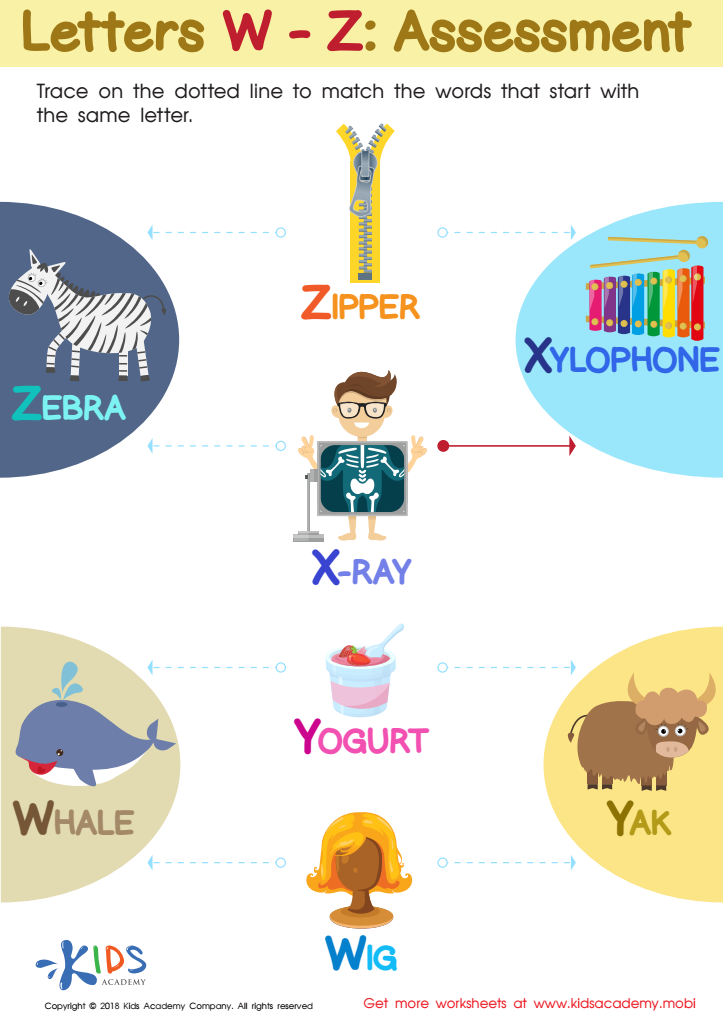

Letters W–Z Tracing Worksheet
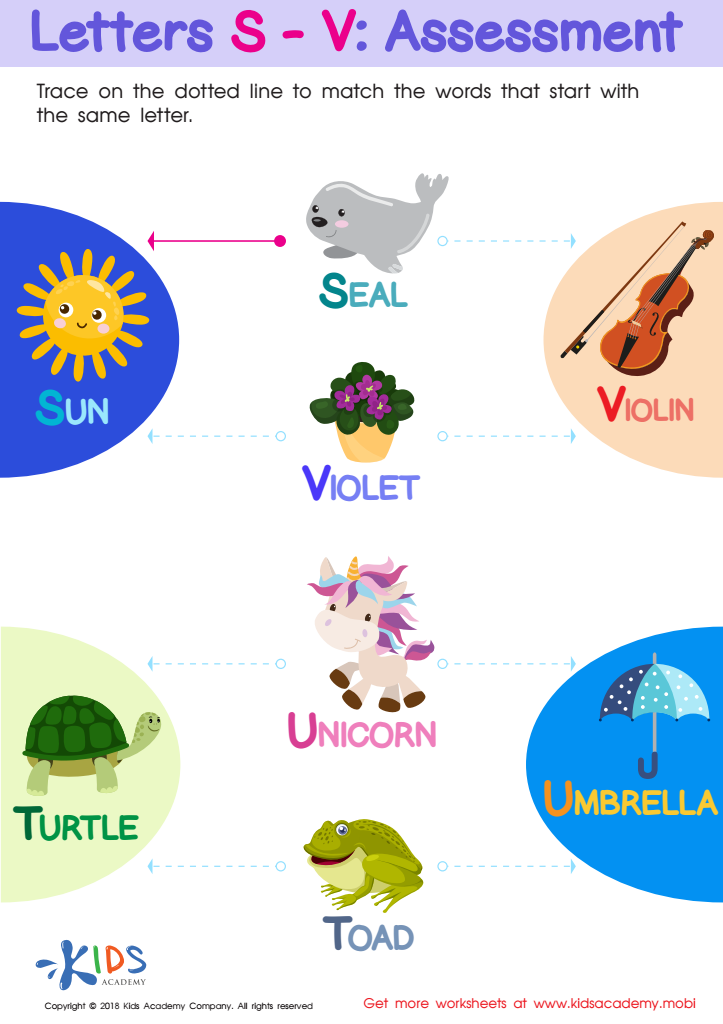

Letters S - V Tracing Worksheet
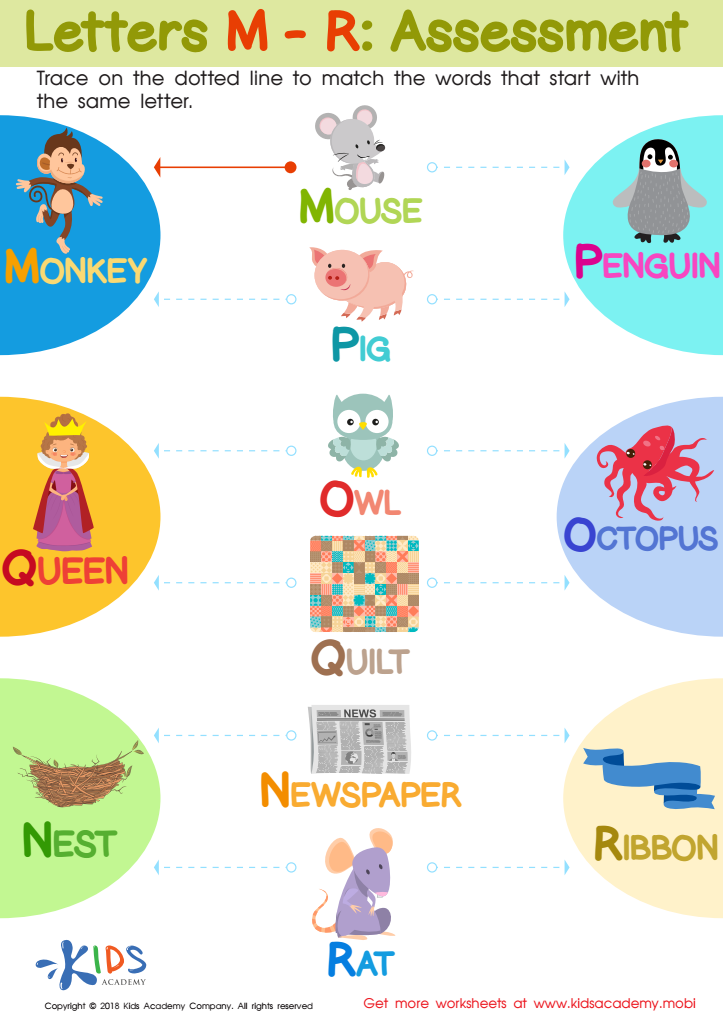

Letters M-R Tracing Worksheet
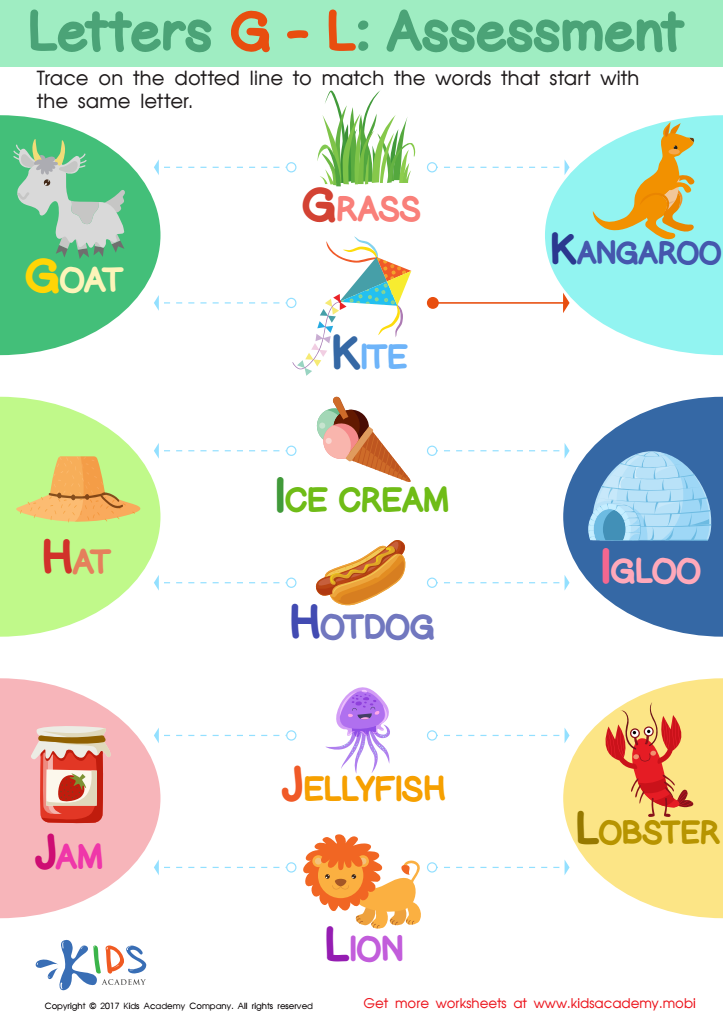

Letters G-L Worksheet
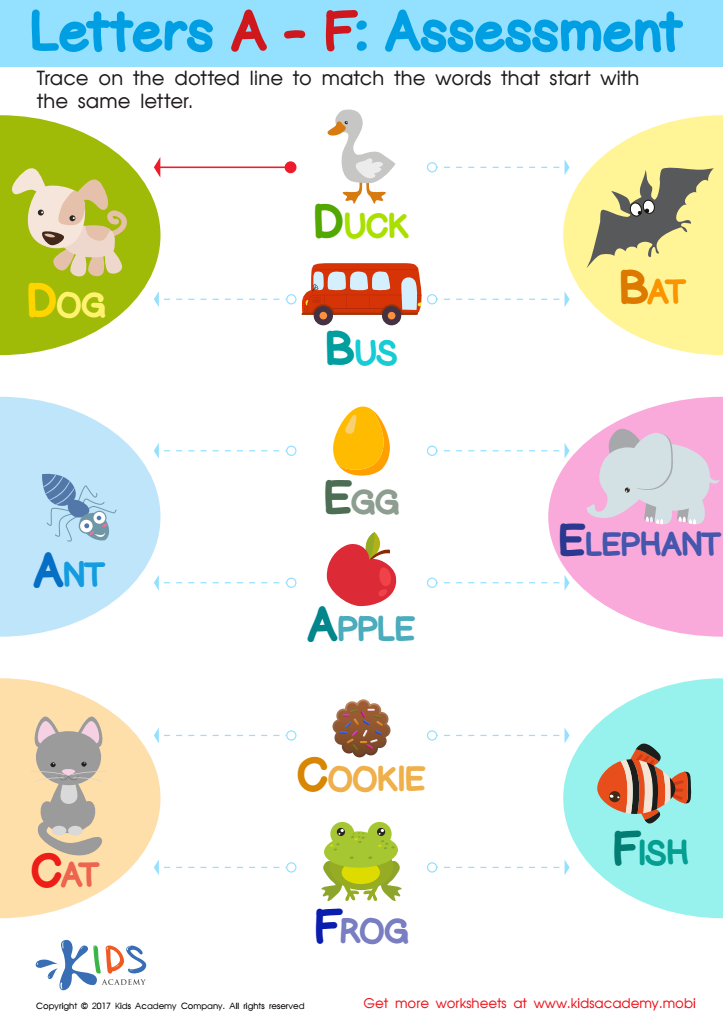

Letters A - F Worksheet
Teaching alphabetizing to children aged 3-8 is crucial for a variety of developmental reasons. Alphabetizing, or the ability to arrange words in alphabetical order, helps young learners grasp the fundamentals of literacy. Recognizing and sequencing letters forms the backbone of reading and writing skills, which are essential lifelong competencies.
Firstly, learning the alphabet and understanding the order of letters builds a foundation for reading. It aids children in recognizing that words are made up of different letters which, when combined, have meaning. This knowledge boosts their phonetic understanding, making it easier to decode new words, thereby improving reading fluency.
Alphabetizing also enhances cognitive development. It encourages logical thinking as the child practices arranging items systematically. This kind of sequencing is a critical pre-math skill that supports pattern recognition and problem-solving abilities.
Moreover, knowledge of alphabetical order supports research skills and the ability to utilize resources like dictionaries, indexes, and digital search tools effectively. This foundational skill aids in better organization and efficiency inside and outside the classroom.
Lastly, mastering alphabetizing fosters self-confidence. As children learn and apply these skills successfully, they gain a sense of accomplishment and confidence in their academic abilities.
In summary, alphabetizing is more than just a learning task; it's a gateway to numerous academic and cognitive benefits critical for young children's growth and future success.
 Assign to My Students
Assign to My Students














